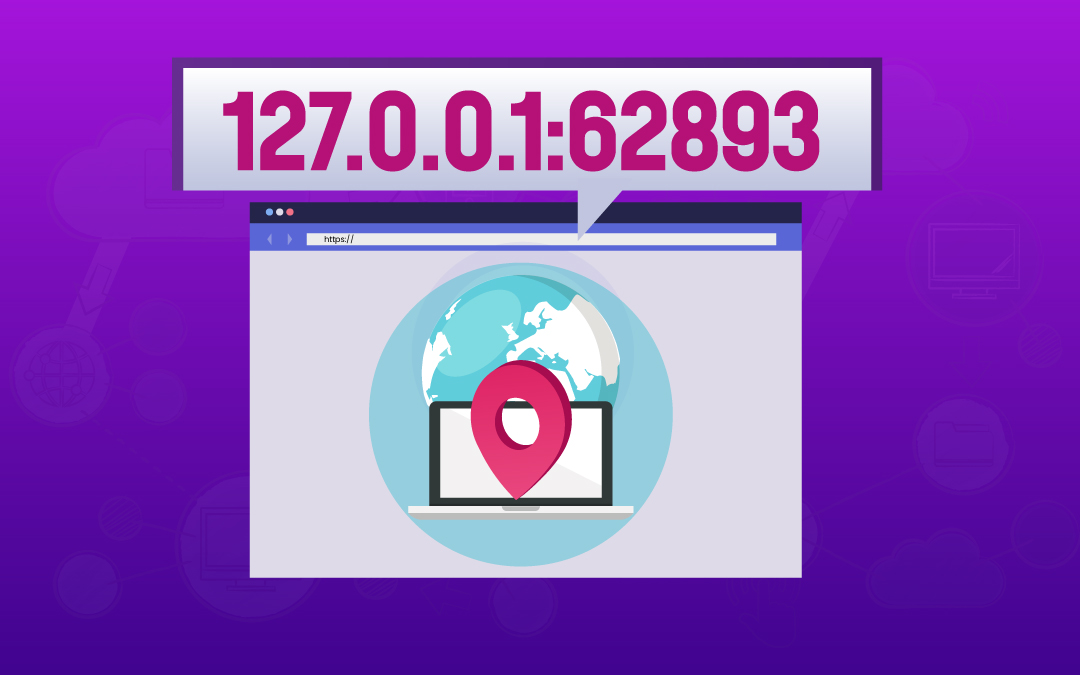When working with web development, servers, or network configurations, you may have encountered IP addresses like 127.0.0.1:62893. This address is commonly associated with localhost and is used for connecting to servers on your own computer for development and testing purposes. In this article, we’ll explore what 127.0.0.1:62893 signifies, why it’s important, and how to use it effectively for local server connections.
What is 127.0.0.1?
The IP address 127.0.0.1 is a loopback address, which is primarily used for local machine testing and debugging without the need to connect to an external network. Here’s a closer look at its components:
| Element | Description |
|---|---|
| 127.0.0.1 | A reserved loopback address that points back to your device, also known as localhost. |
| 62893 | A port number that specifies a unique entry point on the server. Port numbers in networking allow multiple services to run on the same IP address. |
Whenever you access 127.0.0.1:62893, you’re instructing your computer to open a specific service or application (on port 62893) that runs on your local server.
Why Use 127.0.0.1:62893?
Using 127.0.0.1:62893 has many advantages, especially in software development and testing environments. Here’s why:
- Isolated Testing Environment: Since 127.0.0.1 routes traffic only to your local computer, you can test applications securely without internet exposure.
- Real-Time Debugging: Working locally provides faster feedback and makes it easier to troubleshoot applications during development.
- Reduced Latency: Connections made to 127.0.0.1:62893 avoid network latency, making it an ideal setup for testing web servers, databases, or other services.
How to Use 127.0.0.1:62893 in Localhost Development
To set up a local server and test it using 127.0.0.1:62893, follow these steps:
- Install a Local Server: Choose a web server software such as Apache, Nginx, or a development environment like XAMPP or MAMP.
- Configure Server Settings:
- Open your server’s configuration file.
- Ensure it listens to 127.0.0.1 (localhost) and the desired port, 62893.
- Start the Server:
- Launch the server.
- Check your system’s task manager or terminal to confirm it’s running on 127.0.0.1:62893.
- Test the Connection:
- Open your browser and enter 127.0.0.1:62893 in the address bar.
- If configured correctly, this should load your local website or application.
Common Use Cases for 127.0.0.1:62893
Here are some typical scenarios where you might use 127.0.0.1:62893 in development:
- Web Development: Run websites or web apps locally to test before deployment.
- Database Testing: Access local databases to validate queries and backend logic.
- API Testing: Connect to APIs running on the local server to ensure they function correctly without external dependencies.
Troubleshooting 127.0.0.1:62893 Issues
If you’re unable to access 127.0.0.1:62893, here are some troubleshooting steps:
- Check Server Status: Ensure your server is running and listening on port 62893.
- Verify Port Availability: Use terminal commands (e.g.,
netstatin Windows) to confirm 62893 is not in use by another application. - Adjust Firewall Settings: Sometimes, firewall rules block connections to certain ports, including 62893. Make sure it’s allowed in your firewall settings.
- Review Configuration Files: Double-check that your server is configured to use 127.0.0.1:62893.
Comparison Table: Localhost Ports for Testing
When setting up different services on 127.0.0.1, it’s common to designate specific ports for each application. Here’s a comparison of common localhost ports:
| Service Type | IP Address | Common Port | Example |
|---|---|---|---|
| Web Development | 127.0.0.1 | 80 or 8080 | 127.0.0.1:80 (Apache server) |
| API Services | 127.0.0.1 | 3000, 4000 | 127.0.0.1:3000 (Node.js) |
| Database | 127.0.0.1 | 3306 | 127.0.0.1:3306 (MySQL) |
| Custom Service | 127.0.0.1 | 62893 | 127.0.0.1:62893 |
This comparison can help you manage different services on localhost efficiently.
FAQs
1. What is the purpose of 127.0.0.1:62893?
The address 127.0.0.1:62893 is used for connecting to a local server on your computer, specifically on port 62893. It’s useful for testing applications or services in a secure, isolated environment.
2. Can I use other ports with 127.0.0.1?
Yes, you can use various ports with 127.0.0.1 to manage different services. Some ports, however, are reserved by default, so it’s advisable to use higher, custom ports like 62893 to avoid conflicts.
3. How do I change the port from 62893 to something else?
In your server configuration file, you can change the port to any available number. After making changes, restart your server for the new settings to take effect.
4. Is 127.0.0.1:62893 accessible from other devices?
No, 127.0.0.1:62893 is only accessible from your local machine. For external access, you would need to configure the server to use your public IP address and ensure proper security protocols are in place.
Conclusion
127.0.0.1:62893 is a valuable tool for developers working on local applications, providing a secure and efficient way to test software and troubleshoot without network interference. By following the guidelines and understanding its setup, you can harness the power of 127.0.0.1:62893 to streamline your development workflow.




















